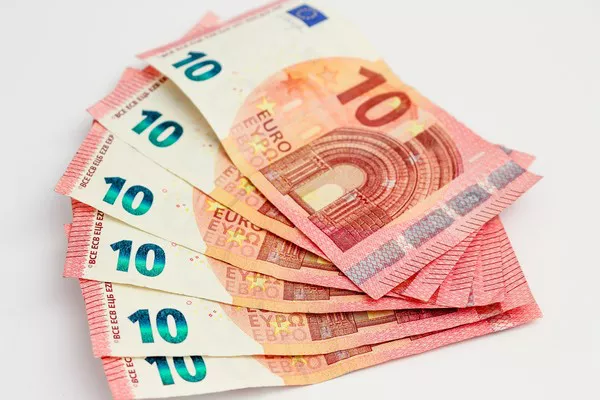The strength of a currency is a topic of perennial interest, especially in the context of global economics. Among the currencies that attract significant attention is the euro, serving as the official currency for 19 of the 27 member states of the European Union. As we navigate through economic uncertainties, many investors, businesses, and individuals are keen to understand whether the euro is poised to strengthen in the near future. This article delves into the various factors that influence the euro’s strength, providing insights into its potential trajectory.
1. Economic Indicators and Monetary Policy
Impact of Economic Data Releases
Economic indicators play a crucial role in determining the strength of a currency. Factors such as GDP growth, inflation rates, unemployment figures, and trade balances can significantly influence market sentiment towards a currency. Positive economic data, such as robust GDP growth or declining unemployment rates, often lead to increased confidence in the currency, potentially strengthening it against other currencies.
Interest Rates and Central Bank Policy
The monetary policy decisions of the European Central Bank (ECB) are pivotal in shaping the euro’s strength. Interest rates set by the ECB have a direct impact on the attractiveness of the euro for investors. Higher interest rates typically lead to increased demand for the currency, as investors seek higher returns on their investments. Conversely, lower interest rates may weaken the euro as investors look for better yield opportunities elsewhere.
2. Political Stability and Geopolitical Factors
Political Developments within the Eurozone
Political stability within the Eurozone is essential for maintaining confidence in the euro. Political uncertainty or instability can lead to market volatility and weaken the currency. Factors such as elections, government policies, and geopolitical tensions can all influence market sentiment towards the euro.
Brexit and its Implications
The United Kingdom’s decision to leave the European Union, commonly referred to as Brexit, has had a significant impact on the euro. While the immediate aftermath of the Brexit referendum led to volatility in currency markets, subsequent developments have shown that the eurozone has remained resilient. However, ongoing negotiations and any potential disruptions in trade relations between the UK and the EU could still affect the euro’s strength.
3. Global Economic Trends and Market Sentiment
Impact of Global Economic Conditions
The euro’s strength is also influenced by broader global economic trends. Factors such as economic growth in major economies, trade dynamics, and geopolitical events can all affect market sentiment towards the euro. During periods of global uncertainty, investors may flock to safe-haven currencies, potentially strengthening the euro against riskier currencies.
US Dollar Dynamics
The relationship between the euro and the US dollar is particularly noteworthy, given the significance of both currencies in the global economy. Changes in US economic indicators, Federal Reserve policy decisions, and geopolitical developments can all impact the euro-dollar exchange rate. A stronger US dollar typically implies a weaker euro and vice versa.
4. Market Speculation and Investor Sentiment
Role of Speculation in Currency Markets
Market speculation and investor sentiment can also influence the euro’s strength in the short term. Factors such as speculative trading, sentiment surveys, and market positioning can lead to fluctuations in the currency’s value. While speculative activity can sometimes amplify trends in currency markets, it’s essential to distinguish between short-term speculation and long-term fundamentals when assessing the euro’s outlook.
Impact of Risk Appetite and Sentiment Shifts
Changes in investor risk appetite and sentiment can have a significant impact on currency markets. During times of market turmoil or heightened uncertainty, investors may seek refuge in safe-haven assets, potentially strengthening the euro. Conversely, improved market sentiment and a greater appetite for riskier assets may lead to a weaker euro as investors diversify away from safe-haven currencies.
FAQs
1. Will the Euro Strengthen Against the US Dollar?
The strength of the euro against the US dollar depends on a multitude of factors, including economic data releases, monetary policy decisions by the ECB and the Federal Reserve, geopolitical developments, and global market sentiment. While predictions can vary based on prevailing conditions, it’s essential to monitor these factors closely to gauge the euro’s potential trajectory against the US dollar.
2. How Does Inflation Impact the Euro’s Strength?
Inflation has a complex relationship with currency strength. Moderate inflation can be a sign of a healthy economy, potentially boosting confidence in the euro. However, excessively high inflation rates can erode the purchasing power of the currency, leading to depreciation. Conversely, persistently low inflation or deflationary pressures may raise concerns about economic stagnation, potentially weakening the euro.
3. What Role Does Trade Balance Play in Determining the Euro’s Strength?
The trade balance, which reflects the difference between a country’s exports and imports, can impact the euro’s strength. A trade surplus, where exports exceed imports, can contribute to a stronger euro by demonstrating the competitiveness of the eurozone’s economy. Conversely, a trade deficit may lead to a weaker euro, as it suggests a higher demand for foreign currencies to finance imports. However, other factors, such as capital flows and investor sentiment, also play a significant role in determining the currency’s strength.
See Also Exploring Europe’s Population: Which Country Reigns Supreme?
In conclusion
Predicting the future strength of the euro requires a comprehensive understanding of various economic, political, and market factors. While certain trends and indicators can provide insights into the currency’s potential trajectory, it’s essential to remain vigilant and adapt to evolving market conditions. By monitoring key developments and assessing the interplay of different factors, investors and market participants can make more informed decisions regarding their exposure to the euro and currency markets in general.


